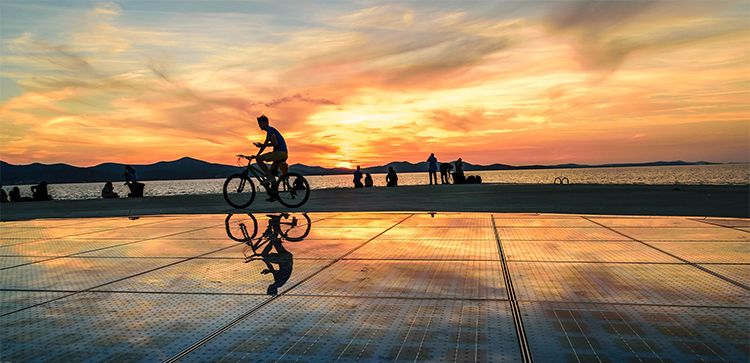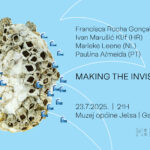With TCN’s ever-expanding portfolio it was only a matter of time before we moved in the direction of health and wellness oriented articles. The climate, geography, nature and cuisine of Croatia makes it ‘fertile land’ for looking after our health but are we all operating to the best of our abilities?
Thankfully, we won’t try and speculate ourselves but will now look forward to contributions from Miro Bandalo (welcome Miro), a Doctor of Chiropractic, international lecturer, corporate consultant, author, and educator. As a health expert and educator, he is driven by the conviction that each of us has the potential for greatness and unlimited abilities.
Miro is going to ease us into this conversation (no heavy lifting too early) with a general introduction – “What is Health and How Can We Get There”, now, over to Miro…
Google health. 3,480,000,000 results later, I doubt you’ll be wiser on the topic. Sometimes this multibillion-dollar industry of pedalling pills, potions, oils and lotions seems no different than selling snake oil. Many of us find ourselves confused and overwhelmed with so much conflicting information. Given that being healthy often falls within the top few life goals for most people, let’s try to decipher what health is, and more importantly, how to go about being healthy without the very pursuit causing further health problems.
Wikipedia defines health as “the level of functional and metabolic efficiency of a living organism. In humans, it is the ability of individuals or communities to adapt and self-manage when facing physical, mental, psychological and social changes with environment.” Wikipedia’s description may seem a bit heady, yet it provides a framework, which is the foundation for figuring out what health is and we can achieve it. How well are we able to adapt to our environment? Environment means stress, whether good or bad. Stress can be threefold: physical, chemical and emotional (mental).
Envision yourself as an empty glass. The glass is your nervous system and its main job is to adapt your body to your environment. Every stress you’re exposed to fills that glass to a certain amount. Everything you’re exposed to in a physical manner such as your posture, bodily positions related to the work you do or a slip or a fall, every chemical you put in your body or your body absorbs from the air, water or food, as well as any thoughts you have, fill up the glass. It may be a drop such as some minor item, or it can be a bucket of water such as a traumatic event. If the glass overflows, the stress is higher than what the nervous system can adapt to and injury will happen. It may be an injury to the musculoskeletal system, it can be an injury to an internal organ, or it can be a psychological trauma. Naturally, there are certain types of stress we cannot control, but most of them can be controlled so long as we are aware of the type of stress, and know how to manage different types of stress.
Physical stress can be chronic or acute. Some examples of acute physical stress include slipping and falling, sports-related injuries or a car accident. Most of these are unavoidable, but they are also a minority. Majority of physical stress is of chronic nature and it relates to posture. Posture while standing, sitting, working. Sitting tends to be worst, and it is often said that sitting is the new smoking. Therefore spending money on expensive chairs will not fix the problem, much as buying expensive cigarettes won’t make your lungs happier. Did you know 80% of us will have low back pain at some point in our lives? And most of us aren’t aware that we can heal ourselves – pay attention to your posture and change it every 15-20min and you’ll prevent being a statistic.

Chemical stress relates to what we put on or bring into our bodies; from the air we breathe, the water we drink, the food we eat. Pollution in any of those means pollution in our bodies. Yet it goes further than that. It also means that any time you swallow a pill, put a lotion on your skin, use a deodorant, or makeup, you are adding to the chemical stress. More importantly, our bodies are designed in such a way that they can break down chemicals found in nature relatively well. On the other hand, our bodies cannot easily break down synthetic products. It is best to use products that are closest to their natural form or have been processed the least. For example, it should make sense to eat an orange rather than drink orange juice. Or if drinking juice is what you prefer, make your own juice from oranges rather than from concentrate. Seems so simple that it sounds silly to even say it, but simple isn’t what our society chooses, and simple doesn’t mean easy.

Emotional stress is the last type of stress we’ll describe but is definitely not the least. It is a type of stress that’s most impactful on our health because it is always present. It is also the hardest to define or to measure as it relates to every thought or emotion processed during a day. Every thought we have results with a chemical, and those chemicals affect the body. It can be a stressful relationship, a job we are unsatisfied with, past regret or an undefined future such as a date or a job interview.
Articles that follow will delve deeper into each of the types of stress, and will be more practical in nature, but ponder this framework and see if it provides a better perspective. Health is how well we adapt to our environment, which is stress and consists of physical, chemical or emotional stress. Each stress contributes to our daily limit, and we suffer when that limit is surpassed beyond our ability to heal and restore. Improving our ability to recognize the imbalance, and managing the type(s) of stress causing the problem will lead to improved health, and help us thrive as individuals and communities.
Do you have any examples of your cup overflowing? How did this affect you and what did you have to do in order to get better?









